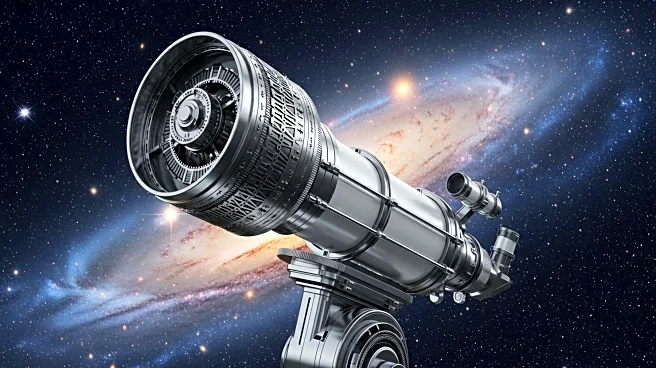What's Happening?
Astronomers using the James Webb Space Telescope have identified a mysterious object that may be a primordial black hole, potentially challenging the standard cosmological model. This object, located beyond ancient galaxies, could indicate that black holes formed before stars in the early universe. The discovery, if confirmed, would require a reevaluation of the sequence of cosmic evolution post-Big Bang.
Why It's Important?
The potential identification of a primordial black hole could reshape our understanding of the universe's formation and evolution. It challenges the conventional belief that stars preceded black holes, suggesting a need to revisit theoretical models of cosmic development. This discovery could impact the field of cosmology, prompting new research into the mechanisms of early universe formation.
What's Next?
Further observations and analysis are required to confirm the nature of the object. A larger space telescope may be needed to obtain clearer images and data. The scientific community will likely engage in debates and research to explore alternative explanations and refine models of early universe phenomena.
Beyond the Headlines
The discovery highlights the technological advancements in space observation, allowing astronomers to explore the universe's distant past. It underscores the importance of continued investment in space telescopes and research to uncover the mysteries of cosmic origins.











